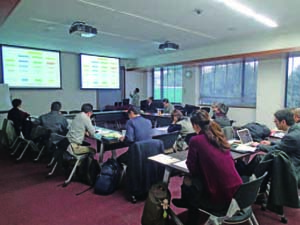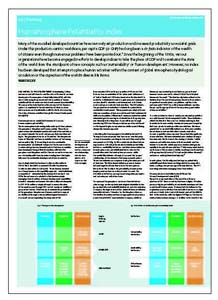Collaborators: SATO, Takahiro (International Rice Research Institute, Crop and Environmental Science Division)
NISHI, Makoto (Kyoto University, Global Survivability Studies Unit)
WATANABE, Kazuo (Research Institute for Humanity and Nature, Research Department)
SUGIHARA, Kaoru (National Graduate Institute Policy Studies, Graduate Program)
MINE, Youichi (Doshisha University, Graduate School of Global Studies)
KONO, Yasuyuki (Kyoto University, Center for Southeast Asian Studies)
MARIO, Ivan Lopez (Kyoto University, Center for Southeast Asian Studies)
Term:2013-2014
Outline of Research:

International Workshop
In our previous research we re-examined previous development indexes, and propouded a new development index titled the ‘Humanospher Potentiality Index’ (HPI). This was a research outcome from the Global COE Programme “In Search of Humanosphere in Asia and Africa” (CSEAS, Kyoto University). To date, however numerous criticisms have been made by scholars. This research attempts to analyse these criticisms and re-construct the HPI. In addition to this attempt, we will try to obtain further research funds to strengthen our research project.
Description:

Short Essay in the Newsletter (International Institute for Area Studies, Leiden University)
Purpose
The aim of this research is to further develop the “Humanospher Potentiality Index” (HPI). We will re-examine each component of the HPI and compare HPI with other development indexes.
Significance
HPI re-considers sustainable society from the viewpoint of interdisciplinary Area Studies. In doing so, we attempt to provide a new paradigm on development.
Expaected Results
Our aim is to submit and publish an article in the journal Ecological Indicators. We also aim to offer open access to our research to the general public via a homepage in English.
